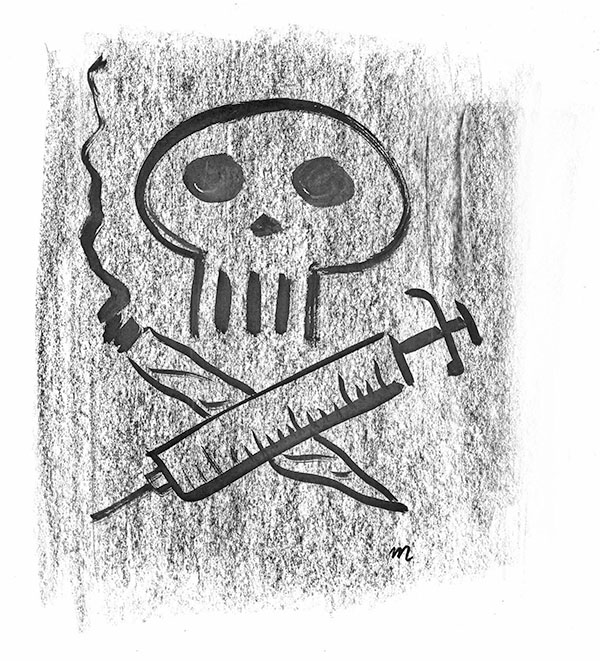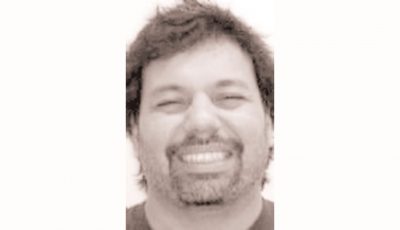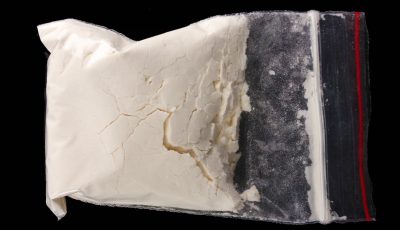The deadliest disease

300 dpi Mark Weber illustration of skull above crossed hypodermic needle, marijuana cigarette; can be used with stories about substance abuse. Op Art 2008
02000000; CLJ; krtcrime crime; krtnational national; krtworld world; krt; krtopinion opinion op-ed; mctopart; tms contributed; 02001004; CRI; drug; trafficking; 14001000; addiction; krtsocialissue social issue; SOI; weber; drugs; hypodermic nbeedle; marijuana cigarette cigaret pot; skull; 2008; krt2008
One of the biggest challenges that we face as a community is apathy.
Apathy kills. When people are unaware or even uncaring about an epidemic in their midst that is ruining lives and families then the disease wins.
I know it is hard to think of addiction as a disease but it surely is.
Addiction to drugs or alcohol takes over the addict’s life and becomes the sole focus of their existence.
But that is not the deadliest thing about it. The deadliest thing about it is the stigma attached to addiction that stops people from getting involved and helping someone escape from the clutches of the disease of addiction.
Addiction is based on the alteration of the physical and chemical makeup of the addict’s brain and body. It is not a moral failing. It is not a weakness. It is not anything but an unfortunate, albeit known, side effect of using the drug in question. Once the brain has changed its wiring to the addicted brain, then the addict has no control over it.
Nobody sets out to become an addict. Much like a diabetic or a patient with heart disease, they thought that it wouldn’t affect them. People put on weight and eat too much starch and sugar despite having diabetes themselves or in their families. People continue to smoke and eat unhealthy things even though they have heart disease or it is in their families. But these diseases do not carry a stigma.
You do not hear of someone saying that diabetics should be put in jail because they won’t stay away from sugar. You do not hear of someone who wants to lock up people who have heart disease, yet these are mostly diseases of excess. What you do hear is people encouraging diabetics and heart patients to eat healthier, exercise and otherwise be healthier.
And that is as it should be.
But the stigma attached to addiction prevents people from seeking treatment. It is a disease of darkness and secretiveness that further alienates the addict from resources that can help him or her. The family of the addict is embarrassed or ashamed of them. The whole family is often in denial about the depth of the addiction and how to get away from it. And when the person finally crashes, they take the whole family with them. The first instinct is to try and protect the addict, which only enables them to slide further down. The entire family hits rock bottom at the same time the addict does. The embarrassment, the financial ruin, the death of relationships, the alienation from one’s own children and the general disdain that the community has for addicts make the entire situation unbearable.
At least until the person starts to seek treatment.
Once active treatment begins and the person’s humanity is restored to them then healing can and does begin.
It starts with the addict coming to terms with their illness. It is not a matter of just putting the pipe down and walking away. If it were, there would be no addicts.
As anyone who has ever quit smoking knows, the physical and emotional pain of stopping an addicting substance is quite real and quite uncomfortable.
But eventually the addiction does subside and the addict is able to competently take control of their life and live effectively and happily as long as they do not go back to the drug.
And that is what treatment is all about. It is about replacing the drug with coping skills and life skills that allow an addict to find stress relief in forms that are not self-destructive.
But then there is the stigma.
I have patients who have lost weight and their diabetes went away. I have patients that have heart disease but they stopped smoking and now exercise and are healthier than they have ever been. We compliment those folks on the changes that they made and the good decisions that they have made. We may even envy them some.
But not the addict. Everyone wants to keep an arm’s length away from them at least. Everyone keeps an eye on them, waiting for them to slip up. More often than not they have a criminal record from their addiction that is going to stop them from being employable. They have often lost family and loved ones or remain alienated from them. There is no congratulations for them for having faced down an invisible killer and erasing it from their lives.
Addiction affects every individual on this island in one way or another. It affects all families and it shows no preference to social status, income, color, or sex. And when one member of our community is affected then it weakens us all.
It is time to remove the stigma of recovery from drug addiction once and for all.
Treatment does work. People do get better. People heal. And people come back stronger than ever.
Incarceration and punishment do not work. Recovery must be imposed from within and between the addict and God. Imposing it from the outside does not work. Jailing someone for an illness is not the answer.
A person who is a recovering addict has mastered a vital kind of self-discipline. They have to be morally honest with themselves about the nature of their illness and the dangers that it carries. And they have to live their life that way using all of the skills that many of us take for granted.
Just like the diabetic or the heart patient, the recovering addict should be supported and encouraged. When an A1C or cholesterol numbers come down I compliment my patients and treat it as a big deal because it is. These are positive steps that will allow them to live a longer and healthier life.
So it should be with people suffering from the illness of addiction. When they make the lifestyle changes and put in the work to better themselves we should celebrate their victory. And we should rid ourselves of the stigma and welcome them back to health just as you would anyone else that is recovering from an illness.
If you or a loved one is suffering from addiction call Community Guidance Center at 323-6560 and ask for help. It is confidential and is your key to freedom from addiction and freedom from the effects of another’s addiction on yourself. It’s your turn.



























